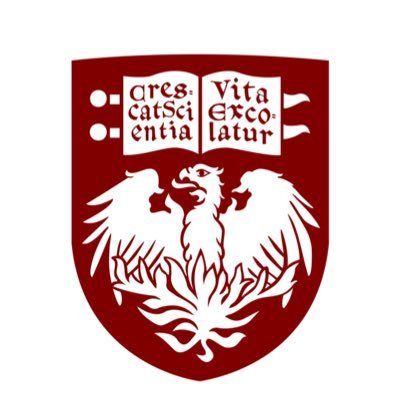预约演示
更新于:2025-05-07
VEGFR1 x VEGFR2 x VEGFR3
更新于:2025-05-07
关联
24
项与 VEGFR1 x VEGFR2 x VEGFR3 相关的药物作用机制 VEGFR1拮抗剂 [+2] |
在研机构 |
原研机构 |
最高研发阶段批准上市 |
首次获批国家/地区 中国 |
首次获批日期2018-09-04 |
作用机制 FGFRs拮抗剂 [+6] |
在研机构 |
非在研适应症 |
最高研发阶段批准上市 |
首次获批国家/地区 中国 |
首次获批日期2018-05-08 |
3,803
项与 VEGFR1 x VEGFR2 x VEGFR3 相关的临床试验NCT06669572
A Phase II, Multi-center, Single Arm Trial of Lenvatinib Plus Pembrolizumab in Patients With Unresectable Locally Advanced and/or Metastatic Anorectal Squamous Cell Carcinoma (ASCC) After Progression on First Line Chemotherapy.
The purpose of this study is to gather information on the safety and effectiveness of lenvatinib combined with pembrolizumab in anal/rectal cancer that has spread to other parts of the body and will not respond to standard care.
开始日期2026-01-13 |
申办/合作机构 |
NCT06474663
A Phase I Study Investigating the Combination of Cladribine, Low Dose Cytarabine and Sorafenib Alternating with Decitabine in Pediatric Relapsed and Refractory Acute Leukemias
To find the recommended dose of the drug combination cladribine, cytarabine, decitabine, and sorafenib in participants with relapsed/refractory AML, MPAL, and ALAL.
开始日期2025-12-31 |
100 项与 VEGFR1 x VEGFR2 x VEGFR3 相关的临床结果
登录后查看更多信息
100 项与 VEGFR1 x VEGFR2 x VEGFR3 相关的转化医学
登录后查看更多信息
0 项与 VEGFR1 x VEGFR2 x VEGFR3 相关的专利(医药)
登录后查看更多信息
394
项与 VEGFR1 x VEGFR2 x VEGFR3 相关的文献(医药)2025-03-01·American Journal of Men's Health
Critical Roles of VEGFR1, VEGFR2, VEGFR3, BAX, and BCL-2 in the Pathogenesis of Varicose Veins: Unveiling Molecular Mechanisms
Article
作者: Khorramdelazad, Hossein ; Abedinzadeh, Mehdi ; Pourmasumi, Soheila ; Vahidi, Seraj-Aldin ; Nazari, Alireza
2024-12-01·Investigational New Drugs
Clinical research progress of fruquintinib in the treatment of malignant tumors
Review
作者: Wang, Hongling ; Li, Jingyi ; Zhao, Shihao ; Liu, Zhanbo ; Zhang, Shunchao ; Wang, Juntao ; Wang, Xiangqi ; Chen, Zhaoqi ; Wang, Wenhui ; Li, Zhigang
2024-12-01·Graefe's Archive for Clinical and Experimental Ophthalmology
Subconjunctival aflibercept inhibits corneal angiogenesis and VEGFR-3+CD11b+ cells
Article
作者: Lee, Hyun Ju ; Song, Hyun Beom ; Ko, Jung Hwa ; Yoon, Chang Ho ; Oh, Joo Youn
36
项与 VEGFR1 x VEGFR2 x VEGFR3 相关的新闻(医药)2025-04-14
近年来,头颈鳞状细胞癌(HNSCC)的综合治疗不断取得进展,尤其是在新辅助治疗策略方面的探索备受关注。不久前,中山大学附属第一医院王安训教授团队牵头开展的“安罗替尼联合化疗用于可切除头颈鳞癌新辅助治疗的II期临床研究”成果正式发表于Cancer Communications杂志(IF 20.1)[1],研究表明,所有受试者均实现客观缓解(ORR 100%),显示出突破性的临床价值。头颈鳞癌:亟需探索更有益的新辅助治疗模式头颈部一旦出现肿瘤侵犯,患者不仅面临生命威胁,更常伴随器官功能障碍与容貌改变,严重影响其生活质量与社会交往。头颈鳞癌是头颈部最常见的恶性肿瘤之一,其治疗目标不仅在于延长生存,更强调器官功能与外观的最大限度保留。目前,美国国家综合癌症网络(NCCN)及中国临床肿瘤学会(CSCO)指南均推荐以手术为主的综合治疗策略用于局部晚期头颈鳞癌(包括口腔癌、口咽癌、下咽癌、喉癌)患者。然后,传统手术常伴创伤大、术后功能恢复困难及高复发率等问题。尽管顺铂联合紫杉醇(TP)或顺铂联合紫杉醇与5-氟尿嘧啶(TPF)方案已广泛用于术前新辅助治疗,其客观缓解率(ORR)通常仅为40%–46%,远未达到理想水平。因此,临床上亟需探索更有效的新辅助治疗模式,以提升缓解率,降低手术难度,改善术后恢复与长期预后。术前治疗新路径:多靶点靶向药物联合化疗提高缓解率近年来,靶向治疗在肺癌、黑色素瘤等实体瘤中取得显著疗效,但在头颈鳞癌中,已明确有效的靶向药物仍较为有限。基于此背景,课题组将正大天晴自主研发的多靶点酪氨酸激酶抑制剂(TKI)——安罗替尼引入新辅助治疗,旨在提升传统化疗的疗效,实现联合治疗的协同增益。安罗替尼作为一种多靶点TKI,能够同时抑制VEGFR、PDGFR和FGFR等多条信号通路,具有显著的抗血管生成和抗肿瘤作用。课题组系列前期研究显示[2-4],安罗替尼对头颈鳞癌细胞具有与顺铂相似的体内外抑制活性,能够通过氧化应激机制诱导细胞凋亡,并发现SOD2表达水平或可作为其治疗敏感性的潜在标志物。此外,在复发/转移性口腔鳞癌患者中,安罗替尼单药治疗的ORR达到19.2%,且安全性良好。基于这些研究成果,团队决定开展本项II期临床研究,以系统评估安罗替尼联合化疗在可切除头颈鳞癌新辅助治疗中的疗效与可行性。本研究为单中心、单臂、开放标签的II期临床试验,共纳入22例ECOG评分0–1的III–IVA期可切除头颈鳞癌患者,接受安罗替尼(12mg/d,d1–14)联合顺铂(75 mg/m²)和白蛋白紫杉醇(260 mg/m²)治疗,周期为每3周一次,共3个周期。主要研究终点为术前客观缓解率(ORR),次要终点包括R0切除率、疾病控制率(DCR)、总生存期(OS)及安全性等。ORR达100%,高缓解率源于多通路协同机制研究结果显示,在完成三周期治疗后,所有受试者均实现客观缓解(ORR 100%),其中95%为部分缓解(PR)。超过一半的受试者肿瘤体积缩小超过50%。进一步的病理评估显示,该联合方案具有突出的抗肿瘤活性:原发灶的病理完全缓解率(pCR)达到41.2%,而颈部转移淋巴结的pCR率则高达54.5%。这些数据表明,安罗替尼联合TP方案在缩小肿瘤体积、提升术前治疗反应率方面具备显著优势,有助于优化术后治疗路径,提升R0切除率,并为器官功能保留创造更多可能性。研究者认为,这一高缓解率主要得益于多方面机制的协同作用:1.研究建立在课题组前期扎实的基础与转化研究成果之上,为安罗替尼在头颈鳞癌中的应用提供了明确的理论支持和机制验证。2.安罗替尼作为多靶点TKI,能同时作用于VEGFR、PDGFR和FGFR等通路,具备抗血管生成、调控肿瘤微环境、诱导氧化应激及细胞凋亡等多重作用。并可通过促进肿瘤血管正常化,改善化疗药物在肿瘤组织中的递送效率,从而增强顺铂与白蛋白紫杉醇的临床获益。3.安罗替尼联合TP方案不仅在血管与微环境层面形成协同,也共同作用于氧化应激及细胞凋亡通路,从多个环节强化抗肿瘤效应。正是在这些机制的共同驱动下,安罗替尼联合TP方案在新辅助治疗中展现出优异的临床表现。本研究为局部晚期可切除头颈鳞癌患者提供了一种具有良好安全性和获益的新辅助治疗方案。在所有受试者达到客观缓解的基础上,治疗结果转化为较高的R0切除率和器官功能保留机会,显著改善了受试者的术后恢复和长期生活质量。同时,该方案也为未来与免疫治疗的联合奠定了基础,特别是在联合PD-1抑制剂等免疫药物方面,有望延长患者的无病生存期。本研究也为临床研究者进一步开展靶向治疗及免疫治疗在头颈部恶性肿瘤中的探索提供了实践样本,有助于推动该领域的研究创新。参考文献:[1] He Q, Huang S, Tang D, Cao C, Zhou W, Ling R, Chen J, Yun B, Zheng X, Li Y, Wang A, Chen D. Neoadjuvant chemotherapy plus anlotinib in the treatment of resectable head and neck squamous cell carcinoma: A pilot phase II trial. Cancer Commun (Lond). 2025 Feb 19. doi: 10.1002/cac2.70006.[2] Huang Z, Su Q, Li W, Ren H, Huang H, Wang A. Suppressed mitochondrial respiration via NOX5-mediated redox imbalance contributes to the antitumor activity of anlotinib in oral squamous cell carcinoma. J Genet Genomics. 2021 Jul 20;48(7):582-594.[3] Li S, Cao C, Huang Z, Tang D, Chen J, Wang A, He Q. SOD2 confers anlotinib resistance via regulation of mitochondrial damage in OSCC. Oral Dis. 2024 Mar;30(2):281-291.[4] Chen J, Li S, Huang Z, Cao C, Wang A, He Q. METTL3 suppresses anlotinib sensitivity by regulating m6A modification of FGFR3 in oral squamous cell carcinoma. Cancer Cell Int. 2022 Sep 27;22(1):295.▲ 上下滑动查看更多声明:1.新闻稿旨在促进医药信息的沟通和交流,仅供医疗卫生专业人士参阅,非广告用途。2.本公司不对任何药品和/或适应症作推荐。3.本新闻稿中涉及的信息仅供参考,不能以任何方式取代专业的医疗指导,也不应被视为诊疗建议。若您想了解具体疾病诊疗信息,请遵从医生或其他医疗卫生专业人士的意见或指导。内容转载自肿瘤资讯公众号● 香港大学全球CEO课程首期班参访正大天晴 谢承润围绕“人制户品”解读管理策略● 1类新药再+1!正大天晴口服BTK蛋白降解剂TQB3019获批临床● 1类新药ST单抗获批临床 按下过敏性鼻炎“反应暂停键”● 正大天晴BCMA/CD3双抗获批临床 靶向罕见病“AL型淀粉样变”
CSCO会议临床2期临床结果
2025-03-31
·癌度
癌度医学临床招募资讯微信群(点击)肺癌是我们国家发病率和死亡率非常高的恶性肿瘤,肺癌分为小细胞肺癌和非小细胞肺癌两种亚型,其中非小细胞肺癌占肺癌的85%左右。非小细胞肺癌又会分为肺腺癌、肺鳞癌、大细胞肺癌等等。根据目前的数据统计,非小细胞肺腺癌经过基因检测有75%到80%的概率能找到靶向药,肺鳞癌则是15%左右可以找到靶向药。如果没有靶向药的治疗机会,非小细胞肺癌患者的一线标准治疗就是化疗联合PD-1抑制剂治疗,根据PD-L1表达情况可以选择是否免于化疗,如果PD-L1表达低于50%则需要联合化疗。但是任何的治疗都是存在耐药的问题,如果没有靶向药治疗机会的非小细胞肺癌PD-1和化疗都用过了,后面怎么治疗呢?其实现如今的办法是比较少的,今天癌度给大家介绍一项国内三期临床试验,试验组用药为AL2846和TQB2450。1、AL2846和TQB2450都是什么药物?由于药物没有批准上市,所以只能以代号的形式表达。AL2846胶囊一款多靶点的酪氨酸激酶受体抑制剂,在分子水平对c-MET、c-KIT、VEGFR1和RET均具有明显的抑制作用,对KDR、PDGFRβ、VEGFR3也有抑制活性,作用机制和强度与卡博替尼相当(卡博替尼是一款大家很熟悉的靶向药)。TQB2450则是一款人源化PD-L1单克隆抗体,可阻止PD-L1与免疫T细胞表面的PD-1和B7.1受体结合,使免疫T细胞恢复杀肿瘤细胞的活性,从而增强免疫应答。早期多项探索临床数据证明TQB2450注射液联合盐酸安罗替尼胶囊在多个瘤种(如非小细胞肺癌、软组织肉瘤、肾细胞癌、子宫内膜癌、卵巢癌、肝细胞癌、胆管癌等)起到协同增效作用。这两款药治疗肝细胞癌等恶性肿瘤的结果已经刊登在国际学术期刊。AL2846联合TQB2450治疗食管癌和肝癌的研究报道2、双药二线治疗非小细胞肺癌有效吗?由于癌度给大家介绍的临床试验是针对非小细胞肺癌,所以我们做了文献调研,AL2846联合TQB2450治疗非小细胞肺癌是有研究数据报道的。相应的临床试验入组的非小细胞肺癌都是经过了PD-1抑制剂/PD-L1抑制剂单药、或者是与铂类化疗联合治疗后病情进展(患者之前系统治疗的线数为1到3),也就是这两个药物的治疗是属于二线以后。截止到2024年1月31日,44名患者入组用药治疗,39名患者可评估治疗效果,初步的结果表明,25.6%的患者可评估肿瘤病灶缩小超过30%以上(治疗应答率),中位无进展生存时间为5.72个月,疾病控制率达到了94.9%,中位缓解持续时间达到了5.54个月。临床研究结果数据发布在国际学术期刊。AL2846联合TQB2450治疗非小细胞肺癌研究报道3、要不要参加临床试验?目前,AL2846联合TQB2450治疗非小细胞肺癌的三期临床试验正在开展,由于这两个药物都是非化疗药物,所以如果患者筛选入组后,后面不能从这两个药物获益还能去使用临床的标准二线治疗药物,相当于手里多了一副牌,所以从这个层面理解这两个药物联合治疗的临床试验是值得去申请的。下面是简单的入排标准,更为详细的入组要求欢迎联系癌度咨询!病理诊断为非小细胞肺癌,排除:EGFR突变、ALK融合、ROS1融合等有意义的驱动基因突变(鳞癌无需检测基因突变);经过一种以上系统治疗后病情进展,最多不能超过二种系统治疗后进展。之前接受过含铂化疗和免疫检查点抑制剂治疗,既往治疗仅接受过一种抗PD-1 (L1)抗体(可靶向PD-1/(L1)的双特异性抗体视为一种抗PD-1/(L1)抗体))治疗。有可测量肿瘤病灶,直径大于1厘米。患者之前没有使用过多西他赛或卡博替尼,也没有使用过安罗替尼等多靶点抗血管生成靶向药。这项临床试验的对照组是临床的标准二线治疗方案多西他赛,患者入组以后不管是用药组还是对照组都是免费的,非常值得大家考虑,肿瘤用药基因检测、临床试验免费用药大家可以关注并联系咨询癌度。参考文献:D. Huang, et al., P4.11E.03 Safety and Efficacy of AL2846 Combined with TQB2450 In NSCLC Patients with Previous PD-(L)1 Inhibitor Treated (NCT06116240), Journal of Thoracic Oncology, 2024. 往期推荐 癌症治疗疫苗系列:树突状细胞疫苗治疗乳腺癌,部分患者病灶完全消失!大长见识,EGFR基因黄金突变19号外显子缺失分4类,用靶向药的总生存时间相差3倍!总生存时间翻倍了,西米普利单抗治疗PD-L1高表达肺癌,几乎所有指标翻倍了!癌症治疗疫苗PGV001人体临床试验,50%的患者活过5年,25%的患者体内无病灶!
临床3期免疫疗法临床结果
2025-03-06
亿帆医药股份有限公司(以下简称“亿帆医药”、“公司”)近日与拜耳医药保健有限公司(以下简称“拜耳”)就拜耳旗下经典靶向药拜万戈® (通用名:瑞戈非尼片)和多吉美®(通用名:甲苯磺酸索拉非尼片)签订商业化合作协议,协议约定,公司获得拜耳旗下经典靶向药拜万戈®和多吉美®在中国大陆地区的独家市场推广权益。
拜耳在消化系统肿瘤尤其是肝癌的治疗领域一直具有较强优势。其正式开启肝癌靶向治疗时代的代表产品多吉美®在独领风骚10年后,作为标准肝癌二线靶向治疗药物的拜万戈®在国内正式获批,再度重塑肝癌系统治疗全程管理新格局,并不断延长患者生存期。
拜万戈®适用于转移性结直肠癌、胃肠道间质瘤及肝细胞癌患者的治疗,多吉美®适用于晚期肾细胞癌、肝细胞癌及放射性碘难治性分化型甲状腺癌患者的治疗。两款产品已在全球100多个国家获得上市许可,在中国大陆,两款产品每年惠及数十万患者。根据国家癌症中心的报告,2022年中国新发癌症病例约482.47万,其中结直肠癌病例51.71万、甲状腺癌病例46.61万、肝癌病例36.77万、肾癌病例7.37万。
亿帆医药目前已拥有一支由300多人组成的专业、规范、成熟的肿瘤市场推广与销售团队,均拥有较强的肿瘤药品合规推广经验,且大部分拥有外资药企的肿瘤销售背景与经验。公司实体瘤团队主要负责希罗达®(卡培他滨片)、万赛维®(盐酸缬更昔洛韦片)、拜万戈®(瑞戈非尼片)、多吉美®(甲苯磺酸索拉非尼片)等产品的市场推广与销售,涉及结直肠癌、肝癌、胃癌、乳腺癌等治疗领域;血液肿瘤团队主要负责柏雪康®(复方黄黛片)、普帆乐®(普乐沙福注射液)、亿法拉®(氯法拉滨注射液)、爱克兰®(美法仑片)、硫酸长春新碱注射液、注射用阿柔比星等产品的市场推广与销售,涉及急性早幼粒细胞白血病、多发性骨髓瘤和恶性淋巴瘤及器官移植等治疗领域。
此次合作标志着公司在专业化推广和国际化合作迈上了新的台阶,为消化道肿瘤业务的发展引入了新的增长动力,是不断升级能力的重要里程碑。面向未来,公司肿瘤团队将继续坚持公司“创新、国际化”的发展战略,为社会创造价值,致力于打造成为国内一流的实体肿瘤与血液肿瘤领域市场推广与销售团队。
—— 声明
1.本资料目的在于提供疾病领域的相关知识、提高疾病认知水平,非广告用途。
2.本资料中涉及的信息仅供参考,请遵从医生或其他医疗卫生专业人士的意见或指导。
分析
对领域进行一次全面的分析。
登录
或

生物医药百科问答
全新生物医药AI Agent 覆盖科研全链路,让突破性发现快人一步
立即开始免费试用!
智慧芽新药情报库是智慧芽专为生命科学人士构建的基于AI的创新药情报平台,助您全方位提升您的研发与决策效率。
立即开始数据试用!
智慧芽新药库数据也通过智慧芽数据服务平台,以API或者数据包形式对外开放,助您更加充分利用智慧芽新药情报信息。
生物序列数据库
生物药研发创新
免费使用
化学结构数据库
小分子化药研发创新
免费使用






